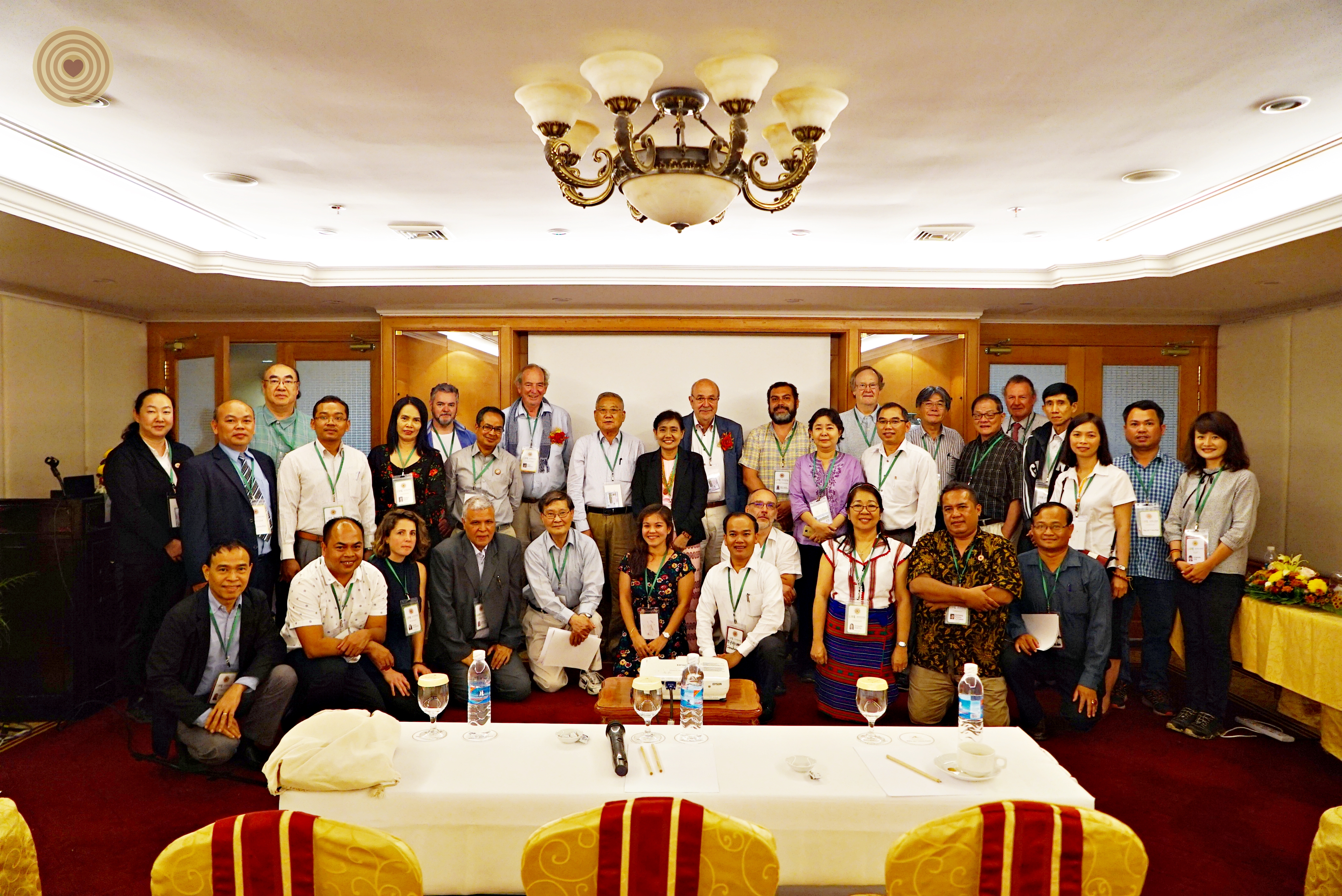Symposium
The 2018 World Wood Day Symposium & The 1st IUFRO Forest Products Culture Research Group Colloquium
|
Theme
Wood for Life: Interdisciplinary Approaches to Sustainable Development & The 1st IUFRO Forest Products Culture Research Group Colloquium
Date
21-23 March, 2018
Venue
Orchid Room, 3F, Angkor Century Hotel
|
 |
Overview
From March 21-23, the 2018 World Wood Day Symposium and the first IUFRO Forest Products Culture Research Group Colloquium gathered 36 scholars from 16 different countries to examine seven sub-categories of research fields in historical utilization and cultural values; traditional knowledge, innovations and practices; landscape and biodiversity conservation; art, design, architecture and music; international and domestic challenges; wood and environmental education and forest products.
Keynote addresses, talks, and heated discussion efficiently allowed speakers to share and exchange their research findings and ideas. Topics elaborated during the three-day program were designed to raise awareness on current issues facing the Greater Mekong Subregion and the world, and to enhance multidisciplinary discussions for the crucial role of wood and non-wood forest products in various cultures and sustainable development.
Rationale
2018 World Wood Day Symposium and the first IUFRO Forest Products Culture Research Group Colloquium jointly aim to encourage exchange of ideas, knowledge, and experiences derived from forest products related research, strategy and sustainable development. Focused topics are designed to raise awareness upon current issues facing the Greater Mekong Subregion and the world, and to enhance multidisciplinary discussions for the crucial role of wood and non-wood forest products in various cultures and sustainable development.
Topics
1. Historical Utilization and Cultural Values
2. Traditional Knowledge, Innovations and Practices
3. Landscape and Biodiversity Conservation
4. Art, Design, Architecture and Music
5. International and Domestic Challenges
6. Wood and Environmental Education